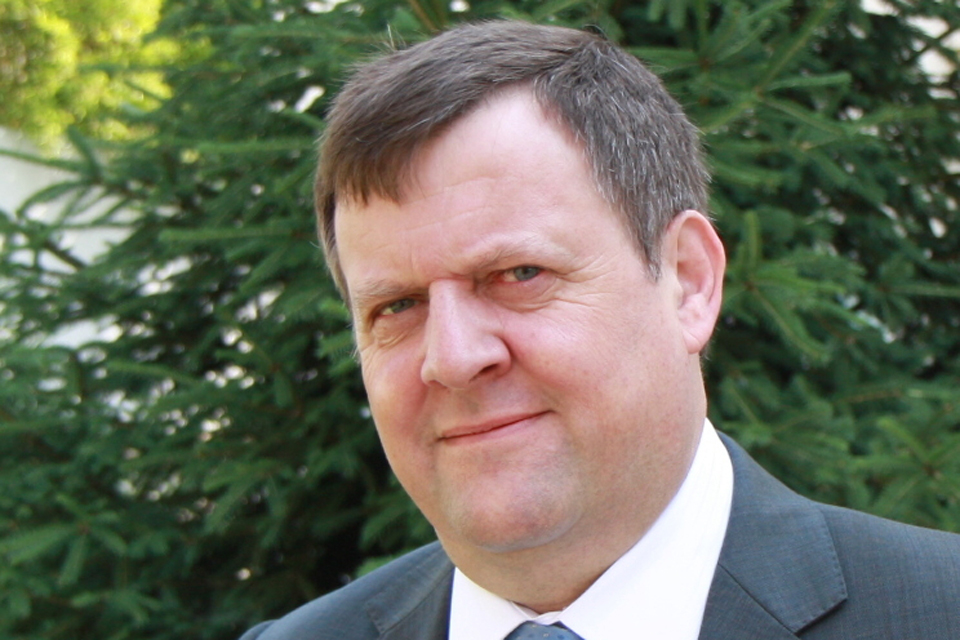Wales: the language and the people
British Ambassador to Albania's speech on Saint David’s Day.

On 1 March, the people of Wales celebrate their national holiday, Saint David’s Day. Wales is a mountainous region in the west of Great Britain, slightly smaller than Albania. Wales is the home of the Welsh language, an ancient and complex Celtic language totally unrelated to English. Around 560,000 people, about 20% of the population of Wales, still speak the Welsh language (although nearly all now also can speak English), plus around 150,000 people in England and 5,000 among Welsh settlers in Argentina. As with Albanian, the Welsh language is divided into numerous dialects and variants, due to the difficult terrain that divided communities from each other. In its ancient form, it was originally spoken throughout Great Britain before the arrival of English-speaking invaders in the sixth century.
Apart from Latin and Greek, the Welsh language has the oldest literature in Europe. The earliest Welsh poetry, around 580, by the poets Aneirin and Taliesin, describes the battles of the Welsh against the English invaders. From those early days, the poets of Wales formed a sort of trade union that defined the styles of poetry, the years of training that a poet needed, and even how much a poet expected to be paid by a prince or nobleman. The Welsh poets of 1100-1300 were known as the “Poets of the Princes”. They gathered at the courts of the independent Welsh princes. Much of their poetry described the heroic battles with the English, or between the princes, or spoke of religious themes. After the defeat of the Welsh by the English, from 1300-1500 there emerged the “Poets of the Nobility” who wrote on themes of the beauties of nature or about love affairs. One of these poets, Dafydd ap Gwilym, is now seen as the greatest of Welsh poets, who wrote over 170 poems in a variety of styles. The earliest prose literature in the Welsh language is the “Mabinogion”, a collection of medieval stories about heroic knights and beautiful maidens, including many strange and magical events. King Arthur, the hero of these stories, was later incorporated into English and French literature as the example of the perfect king at the centre of a circle of brave knights who live to fight for justice and against evil. Even at this very early period, there was a wide variety of Welsh literature, including law codes, histories, and descriptions of the lives of the Welsh saints.
Although the Tudor dynasty that ruled England and Wales from 1485 to 1603 was of Welsh origin, during this period Wales was absorbed into the English administrative and legal system and lost its separate traditions. The Bible was first translated into Welsh in 1588, establishing a model for the modern literary language. But from that time Welsh literature and culture began a slow decline. Many Welsh people abandoned their language, preferring to use English instead. By the 19th century, all education in Wales was in the English language, and in some schools children were beaten by their teachers if they dared to speak in Welsh in class.
However, from the beginning of the 20th century, the Welsh language has made a revival. Now around 20% of schools in Wales teach in the Welsh language, children in English-language schools in Wales are obliged to take lessons in Welsh, and each university in Wales has a Welsh-language section. S4C, a Welsh-language TV channel has become popular. All road signs in Wales are in both languages. Certain jobs in the public sector, such as in the police, local government and the National Health Service, are reserved for those who can communicate with the public in both languages. Members of the public who send letters or documents to the government in Welsh have the right, by law, to receive an answer in their own language.
By an ancient British tradition, the oldest son of the King or Queen of the United Kingdom is known as the Prince of Wales, currently His Royal Highness Prince Charles. The origins of this go back to the conquest of Wales by the English King Edward I in 1301. Having defeated the Welsh princes in battle, he gathered them together at the castle of Carnarvon. He promised them that if they swore an oath of loyalty to him, he would appoint as their leader someone who was born in Wales and spoke not a single word of the English language. The princes were pleased, believing that one of their number would become King of Wales. But after they had all sworn their oaths, King Edward introduced to them his baby son, born in the castle the day before, as their future leader.
In November 2008, the Welsh language was used at a European Union meeting for the first time. British Minister Alun Ffred Jones addressed the EU Council of Ministers in Welsh, saying, “Welsh might be one of the oldest languages to be used in the UK, but it remains one of the most vibrant. Our literature, our arts, our festivals, our great tradition of song all find expression through our language. And this is a powerful demonstration of how our culture, the very essence of who we are, is expressed through language”.
The history of the Welsh language in the modern world demonstrates that a small people can maintain its culture and identity within the institutions of the European Union. But in order for this to happen, the intellectuals of the community, teachers, academics, writers, journalists, must take care to preserve their traditions, teach the language well, and make use of all its possibilities as a vehicle for cultural expression.
On Saint David’s Day, I wish you, as the Welsh say, “Iechyd da i chwi yn awr ac yn oesoedd” - “Good health to you now and forever”.